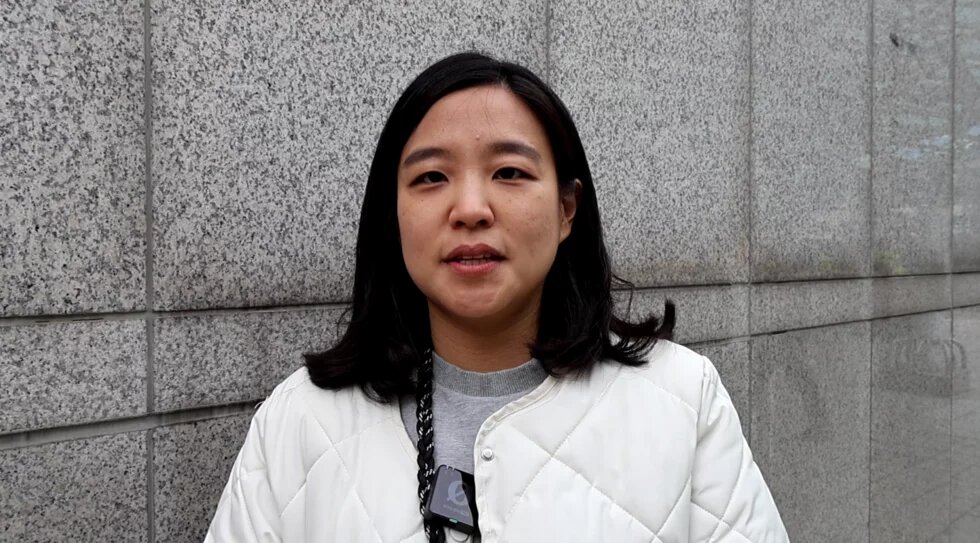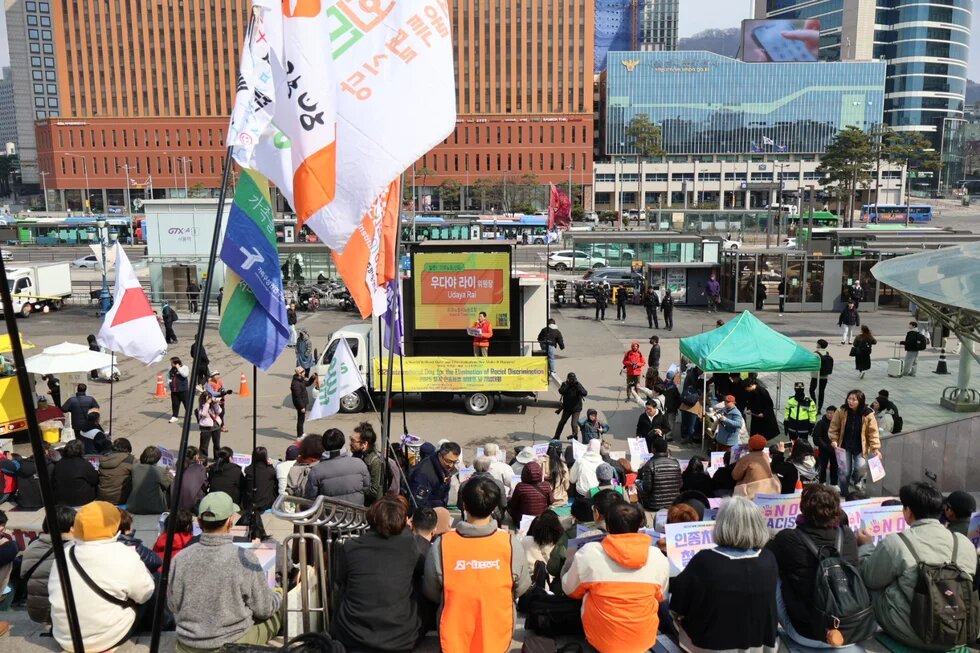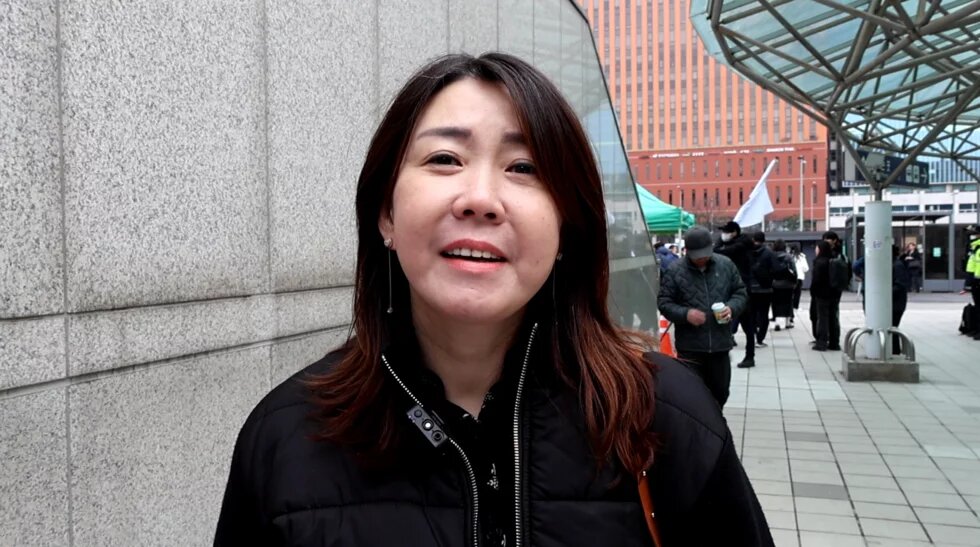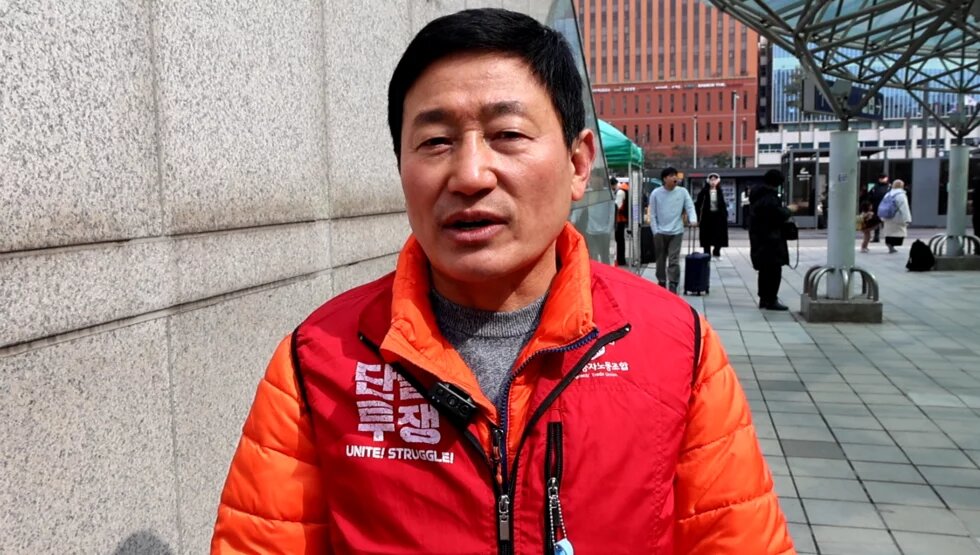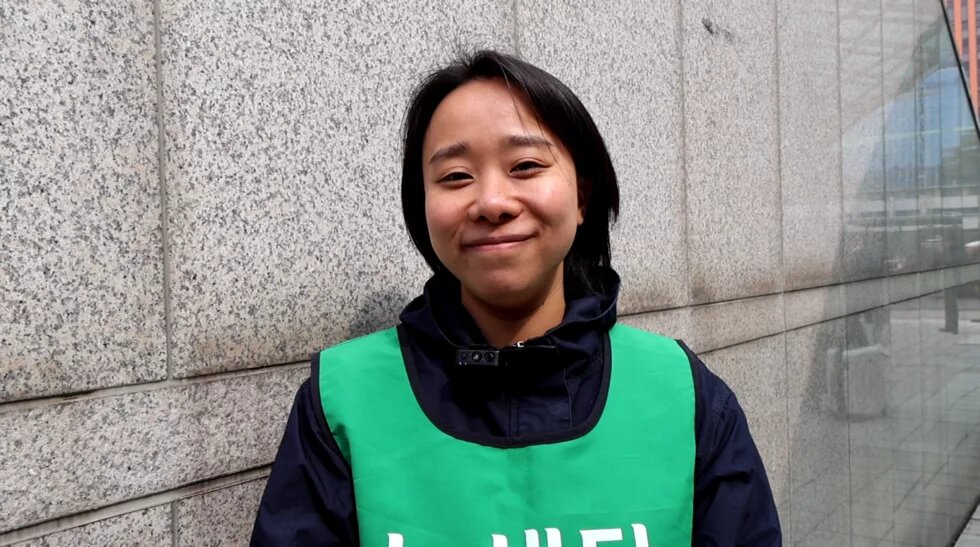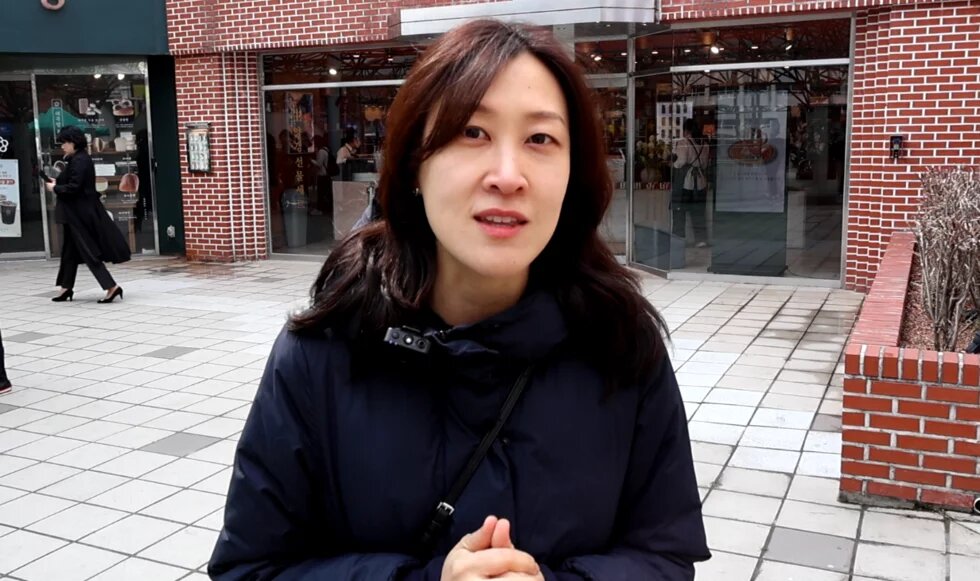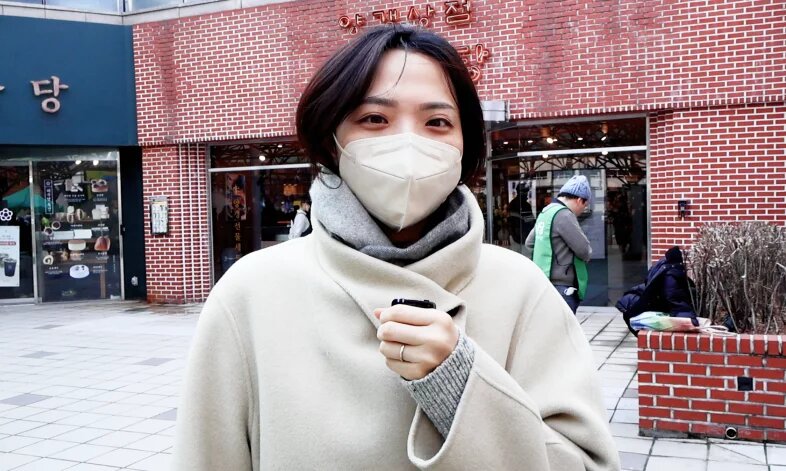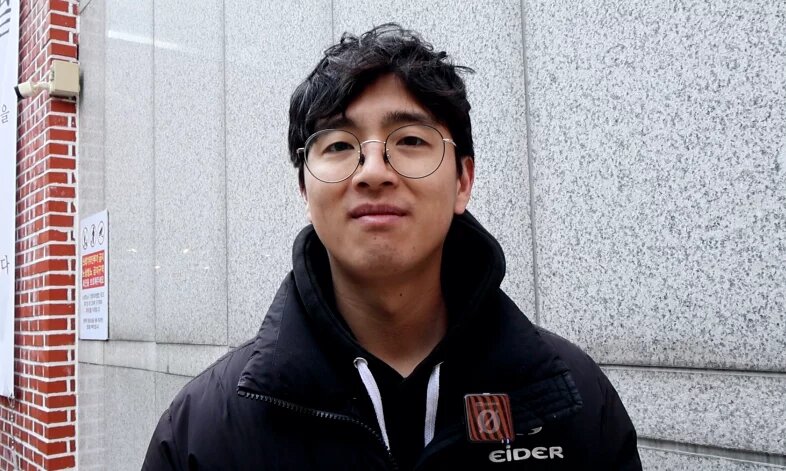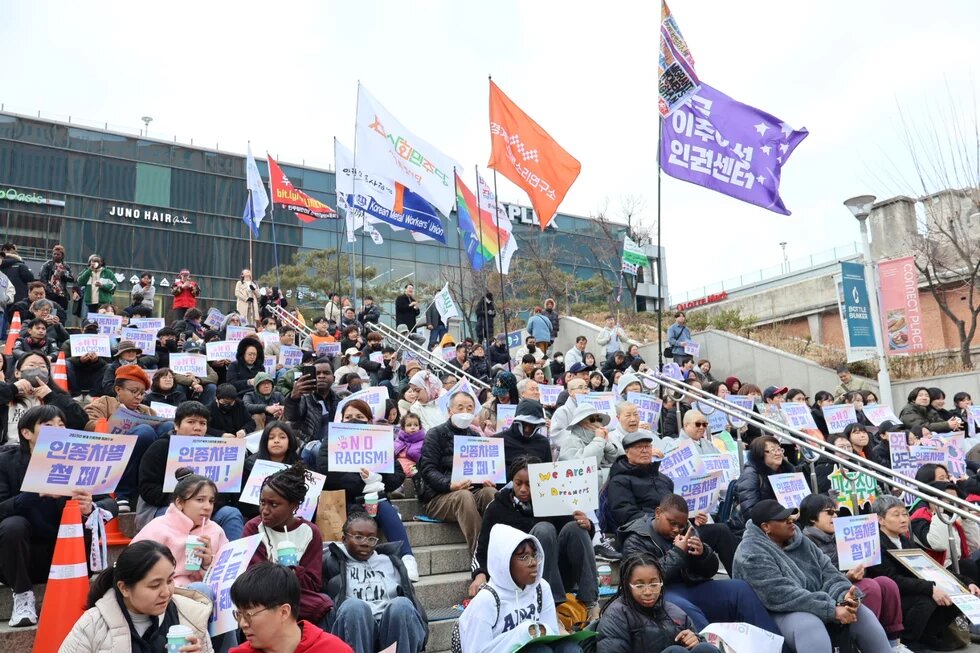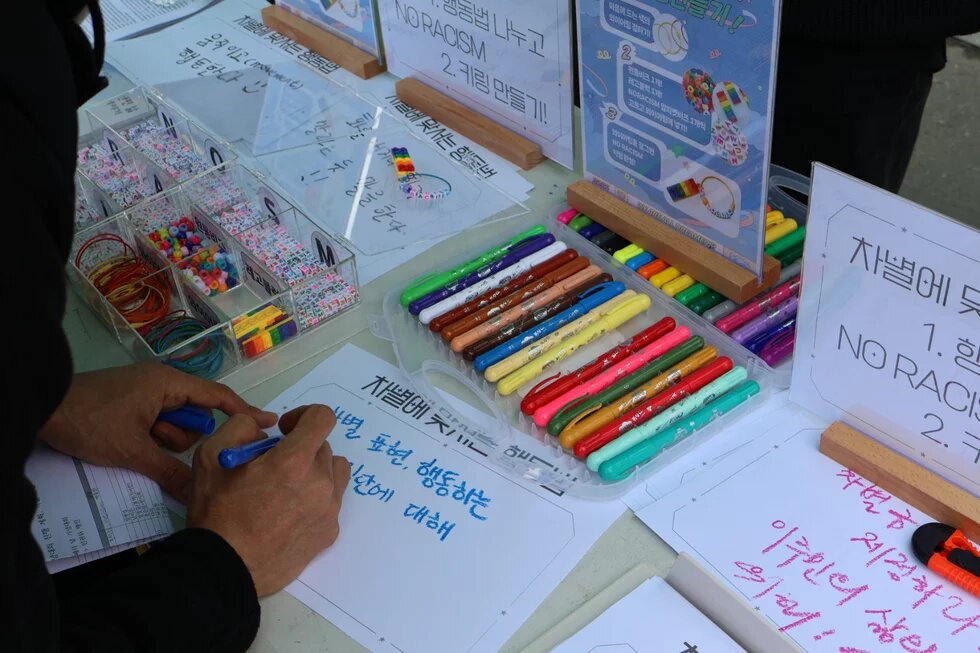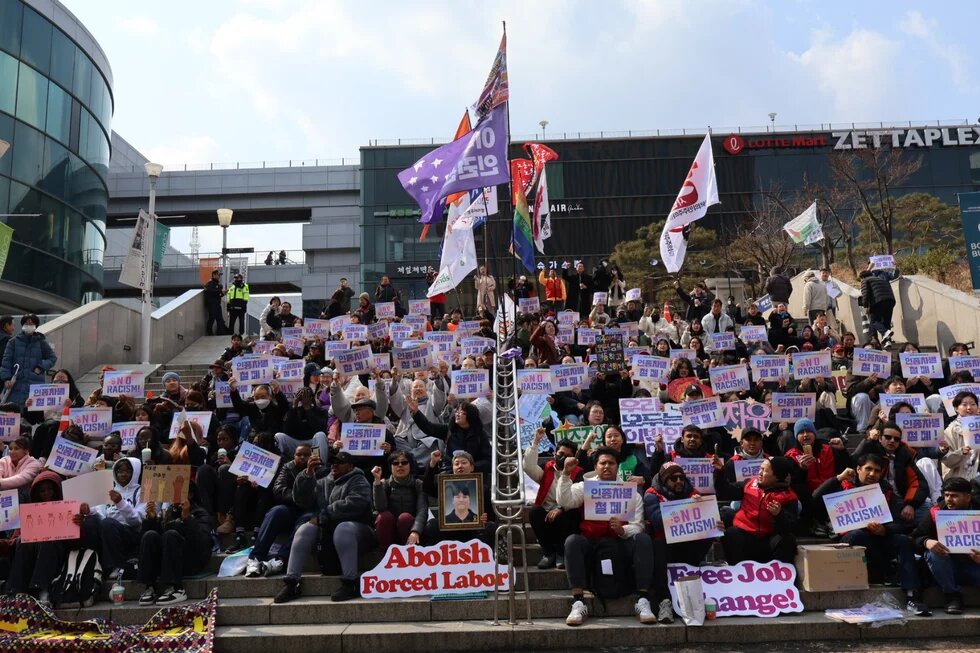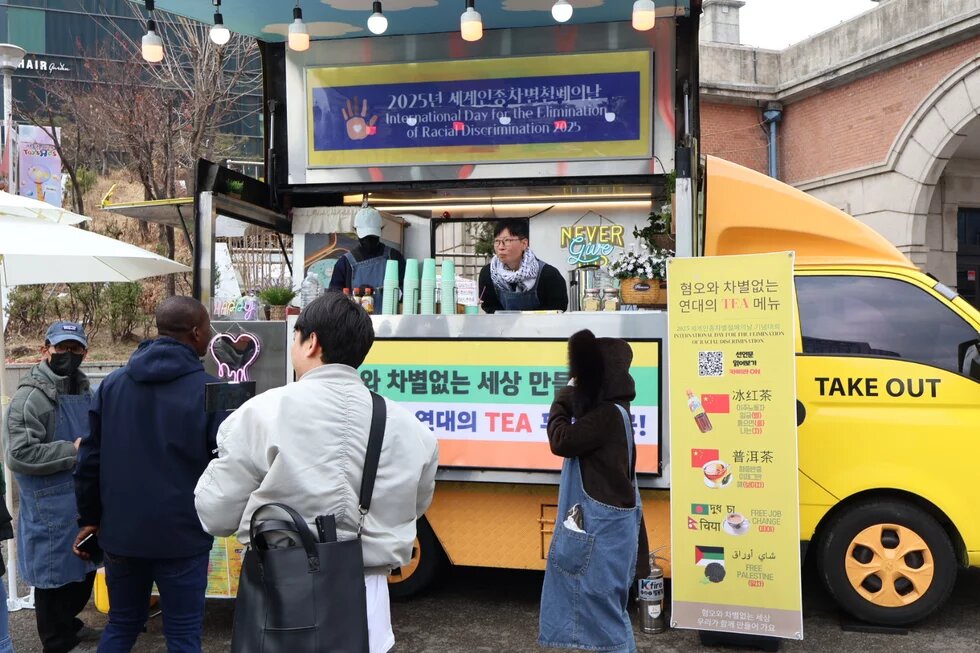
Every year on March 21, the United Nations designates the International Day for the Elimination of Racial Discrimination, inspiring a global wave of anti-racism initiatives. As a sign of solidarity to this movement, an event hosted by migrant rights groups nationwide and supported by the Heinrich Böll Foundation East Asia Office was held on March 16 at Seoul Station Square. To gain insight into the preparation process, representatives from the foundation visited the site, engaging directly with activists and listening to their powerful voices.
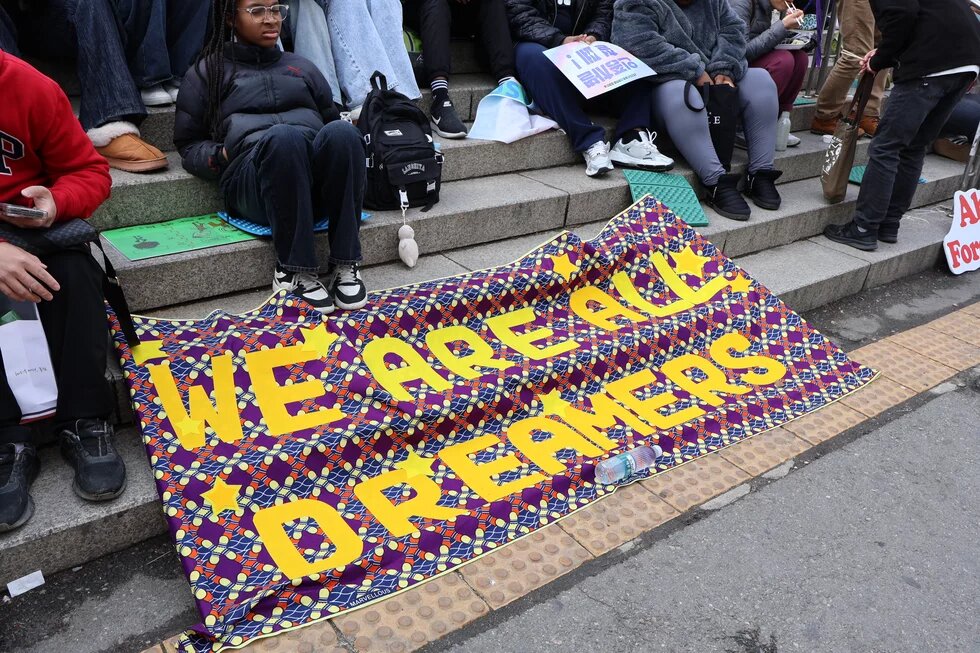
Sketch of the 'International Day for the Elimination of Racial Discrimination' - Heinrich Böll Stiftung East Asia
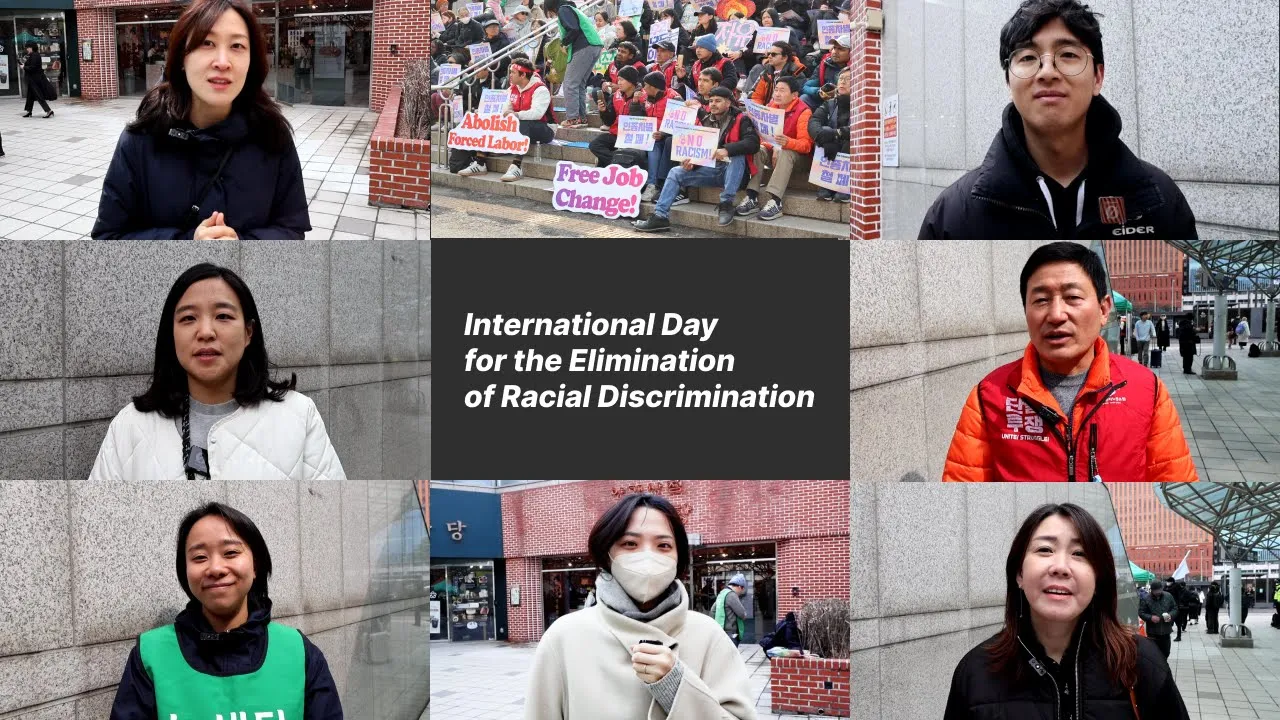 Watch on YouTube
Watch on YouTube
The perception that Korea has been a homogeneous nation since the era of Dangun remains deeply ingrained among some people. However, this belief may no longer accurately reflect today’s reality. As of 2023, the number of registered foreign residents in Korea stands at approximately 2,507,584. According to the standards set by the Organization for Economic Co-operation and Development (OECD), a country is classified as a "multicultural and multiethnic society" if its population with migration backgrounds—including naturalized citizens, second-generation immigrants, and foreign residents—exceeds 5% of the total population. Given these figures, it is clear that Korea has already entered a new phase as a multicultural society.
In this context, the International Day for the Elimination of Racial Discrimination (March 21) holds significant meaning for Korean society. It serves as a call to overcome racism and prejudice while fostering diversity and inclusion. The day also underscores the need for Korea to move toward a more open and embracing society. In particular, it provides an important platform for discussions on advancing migrant rights and promoting social integration.
The human rights situation for migrants in Korea still requires significant improvement. The Heinrich Böll Foundation East Asia Office participated in this commemoration event to engage with activists, listen to voices from the field, and gain a deeper understanding of the challenges migrants face. Activists highlighted issues such as discrimination, prejudice, and difficulties in the workplace, calling for better policies and a shift in societal attitudes to foster a more inclusive and equitable environment.
Yeonju Kim, a public interest lawyer at the Refugee Rights Center, expressed concerns about the state of migrant rights in Korea, stating: “Migrant organizations are engaged in a wide range of activities, and the issue of racial discrimination has become increasingly severe. Last year, a parliamentary candidate attempted to personally carry out an illegal arrest, fostering a hostile climate against undocumented migrants. In response, advocacy groups raised the issue, pursued legal action, and successfully held the responsible party accountable. Amid the rise of hate speech and growing racial discrimination, we organized this event to commemorate the International Day for the Elimination of Racial Discrimination, sending a clear message that such hatred and discrimination must come to an end.”
Compared to Europe and the United States, South Korea has relatively low refugee rate and has a relatively weak foundation for migrant communities. How is racial discrimination in Korea being assessed?
Attorney Yeonju Kim remarked, "In Korea, the government's approach to migrants—marked by systemic repression, indifference, or even incitement of discrimination and hate—is a significant issue. Despite its responsibility for refugee protection, the government often shifts the blame onto individuals, readily associating refugees with terrorism or other negative stereotypes. Moreover, there is a lack of legal frameworks to explicitly define and restrict various forms of oppression and hatred faced by minorities, including refugees and migrants. This absence of anti-discrimination laws leaves many vulnerable to unchecked discrimination. As a result, human rights organizations are urgently calling for the enactment of an Anti-Discrimination Law.”
Sunyoung Lim, Director of Migrants Human Rights Three, who has worked as an activist for nearly 30 years, including with the National Human Rights Commission of Korea, emphasized the importance of the event: "The International Convention on the Elimination of All Forms of Racial Discrimination is a fundamental human rights treaty. Racial discrimination day serves as a reminder of the lessons learned from World War II. This convention, established in 1966, is still not widely known by many. The International Day for the Elimination of Racial Discrimination is a day to raise awareness and inform more citizens about this issue."
She further discussed the ongoing efforts of activists in Korean society, focusing on the positive changes brought about by addressing misconceptions. "The term 'illegal immigrant' is widely used in Korea, and it negatively stigmatizes migrants. Civil society has consistently called for a correction of this term to avoid labeling migrants with the negative connotation of 'illegality.' The government’s shift to using the term 'undocumented migrant' is a small but meaningful step toward reducing prejudice," he explained.
Lim also described the concept of the event: "Social movements can sometimes feel heavy and difficult to approach. This event was planned to be joyful and festive, aiming to foster a positive image of migrants. It’s an opportunity for migrants to reach out to native Koreans by offering tea, creating a space for connection and mutual understanding. This is a key feature of the event."
Udaya Rai, Chairperson of the Migrants Trade Union, explained, "Although the International Day for the Elimination of Racial Discrimination is officially on the 21st, migrant workers can only rest on Sundays, so we had to hold the event today (March 16) instead. Everyone should be able to live equally in Korea. However, many migrants in Korea still face discrimination simply because of their religion or nationality. This event was organized with the purpose of eliminating such discrimination together."
He further stated, "While laws and policies in Korea are changing, the situation for migrant workers remains largely unchanged. The government may be making legal adjustments, but when it comes to the actual implementation, there have been no positive changes for migrant workers. In order for us to truly feel the impact, I believe that employers' attitudes toward laws and regulations must change as well." Rai also expressed concern over the growing hate speech targeting migrant workers, stating, "The hate speech directed at migrant workers is increasingly severe. I hope that not only migrant workers but also other minorities, refugees, and undocumented migrants in Korean society will be respected and able to live safely."
Hye-mi Kim, Co-Chair of the Mapo Green Party, stated, "In Korea, the foreign resident population has surpassed 5%, with the number of registered foreigners reaching 1.5 million. Korea is no longer a country where we can say there are no migrants around us. Now, we are working toward a society where we live together with migrants, supporting each other's diversity in workplaces and everyday life."
She continued, "Many migrants are stigmatized as 'illegal' and, unfortunately, there are numerous cases of people dying in sudden arrests. At the very least, the issue of people dying in the name of law enforcement must be addressed quickly. More efforts from the political sector are needed to resolve this."
Jean Kim, an attorney at the Public Interest Law Group Duroo, explained, "The United Nations Committee on the Elimination of Racial Discrimination reviews whether countries are properly adhering to the provisions of the convention. At the end of April this year, a review of Korea is scheduled, and civil society organizations have formed a secretariat to inform the UN about the state of racial discrimination in Korea and to ensure thorough examination."
She also noted, "The efforts of human rights organizations and civil society have not been without results. Legal experts and civil society activists have been collaborating based on UN conventions to advocate for migrant rights in Korean society, and while small, there have been meaningful improvements in certain policies."
Jirim Kim, an attorney at the Public Interest Law Foundation Gonggam, which works for the rights of migrants and refugees, explained, "In Korea, migrant organizations working in areas such as migrant labor, refugees, migrant women, and migrant children have come together to collaborate on various issues. As a member of the UN Convention on the Elimination of All Forms of Racial Discrimination, Korea is scheduled to undergo a review process in 2025 regarding the state of racial discrimination. Activists from different fields of migration are preparing a report to present to the UN, sharing the realities of racial discrimination in Korea and actively participating in the review process."
Kim also highlighted small but meaningful progress: "In the 2019 review in Korea, there was proactive follow-up by civil society regarding the committee’s recommendations, including efforts to improve institutional frameworks and policies. One notable example is the attempt to establish a pathway for undocumented migrant children who have lived in Korea for an extended period to regularize their status, though these efforts were still limited."
Living as a migrant worker in Korea is marked by an unstable residency status and restrictions on workplace mobility, often leaving workers powerless in the face of exploitation and mistreatment by employers. When entering on a non-professional employment visa (E-9), the maximum stay is up to 4 years and 10 months. However, under a long-term employment exception, if workers demonstrate proficiency in Korean and have worked at the same business for a certain period, they can extend their stay without leaving the country, up to 10 years. But these options are still restrictive. These limitations are also obstacles that hinder sustainable and proactive efforts for improving workers’ rights through labor unions.
Lee Sang-yoon, the Organizational Secretary of the Seoul Headquarters of the Korean Confederation of Trade Unions (KCTU), who oversees migrant labor issues, explained the significance of the event: "The organizations participating today include not only migrant workers from various nationalities but also temporary contract workers and women's groups. We are united in solidarity, opposing all forms of discrimination, regardless of nationality."
He continued, "Most migrant workers face serious issues like industrial accidents and unpaid wages. Because it is difficult for migrant workers to sign collective agreements, which is a core function of trade unions, we focus on resolving issues such as wage theft and workplace harassment to ensure workers' rights. We are also helping to organize unions for migrant workers."
Lee emphasized the role of the union: "The scope of nationalities of the migrant workers within the KCTU is limited. It is crucial that we create an environment where more migrant workers and more diverse workers join trade unions so that they can claim labor rights through union efforts. By doing so, they can secure legal residency and receive humane treatment. We will support them in effectively utilizing the union to achieve these goals."
Despite Korea being a signatory to the International Convention on the Elimination of All Forms of Racial Discrimination, there is still widespread racial discrimination and hate faced by migrants, which is consistently raised as a serious issue. The UN Committee on the Elimination of Racial Discrimination has urged fundamental institutional reforms to address Korea's racial discrimination problems in 2007, 2012, and 2018. However, policy improvements have been inconsistent, with migrant suppression policies becoming more repressive depending on the administration, leading to the institutional and social expansion of racial discrimination. During the impeachment phase, certain political factions and far-right groups have intensified anti-China rhetoric, which has escalated to physical violence.
Attorney Kim Ji-rim emphasized, "There are still many people who claim that Korea is a homogenous nation. It is important to raise awareness that racial discrimination exists in Korea and that there are victims. Through the process of reviewing and reporting on the implementation of the convention as a signatory state, our role is to inform what racial discrimination is and what actions the state should take in such situations."
Attorney Kim Yeon-ju expressed, "Although change is slow and seems distant, creating a space where migrant workers and citizens come together in solidarity is essential to prevent the situation from worsening. I believe that a space where we gather and shout for our rights is crucial. As we prepared for this event, we made a resolution to make it feel like a celebration, and I hope that resolution is realized today."
Attorney Kim Jin remarked, "In Korea, there are still many people who do not understand what 'racial discrimination' is. They fail to recognize that hate speech against a specific religion or country could fall under the category of racial discrimination. Therefore, education on what constitutes racial discrimination and why it is important remains an ongoing challenge."
At the end of April 2025, the UN Committee on the Elimination of Racial Discrimination will review the South Korean government's actions. Migrant rights organizations plan to independently draft a civil society report on racial discrimination in Korean society and submit it to the UN, while also participating in the review of the South Korean government. It is hoped that not only in Korea but across East Asia, the human rights of migrants will be highlighted, and that many will join voices in advocating for human rights.
